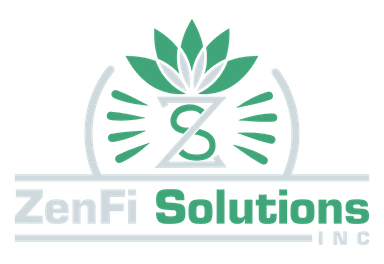
Rethinking Pandemic Learning: From "Missed" to "Mastered" with Asset-Based Education
The echo of "lost learning" during the pandemic still reverberates through classrooms, hallways, and parent-teacher conferences. But what if we reframed this narrative? What if, instead of focusing on what students "missed," we celebrated what they "mastered" through the unprecedented challenges of pandemic learning? This shift in perspective, from deficit thinking to asset-based education, can unlock incredible potential and pave the way for a more empowering and effective learning landscape.
Imagine classrooms buzzing not with anxiety about "catching up," but with the confident hum of students showcasing their resilience, resourcefulness, and adaptability. Picture teachers recognizing and building upon the valuable skills children honed during the pandemic, from navigating technology like digital wizards to fostering self-directed learning and emotional intelligence. This is the transformative power of asset-based education, a model that celebrates individual strengths and builds upon prior experiences, no matter how unconventional.
So, how can we shift the "missed learning" narrative towards a "mastered" mindset? Here are some key strategies:
1. Recognizing Strengths, Not Deficits:
Ditch the deficit labels and standardized test scores as sole measurements of progress. Instead, educators can conduct interest inventories, observe student interactions, and engage in open conversations to identify individual strengths, talents, and passions. Is a student a whiz at coding? A budding entrepreneur with a knack for online marketplaces? An artist whose creativity blossomed during solo learning? These are valuable assets, not gaps to be filled.
2. Building Upon Prior Experiences:
Pandemic learning wasn't a void; it was a unique crucible that fostered diverse skills and experiences. Acknowledge and build upon the self-directed learning, digital literacy, and adaptability students developed during remote learning. Use these experiences as springboards for projects, problem-solving exercises, and personalized learning pathways. A student who honed their research skills while homeschooling can become a peer tutor or lead a project on local history.
3. Celebrating Resilience and Resourcefulness:
The pandemic wasn't just about academics; it was a marathon of emotional resilience and resourcefulness. Celebrate students' ability to cope with stress, maintain positive relationships, and find creative solutions to challenges. Encourage stories of how they supported classmates, managed their emotions, or found joy in unexpected places. These are essential life skills that deserve recognition and can be further nurtured through social-emotional learning programs and community-building activities.
4. Embracing Collaboration and Shared Learning:
Instead of focusing on individual "missed" lessons, emphasize collaborative learning and knowledge sharing. Encourage students to teach each other, create peer mentoring programs, and utilize online platforms for collaborative projects and knowledge exchange. This fosters a sense of community, promotes active learning, and taps into the collective wisdom of the classroom.
5. Making Learning Culturally Relevant and Engaging:
The pandemic highlighted the need for curriculum and teaching methods that resonate with diverse needs and backgrounds. Incorporate culturally relevant materials, connect learning to real-world problems and current events, and encourage student-driven projects that address issues they care about. This not only boosts engagement but also empowers students to see themselves as agents of change and their learning as relevant to their lives.
Rethinking pandemic learning isn't about downplaying its challenges. It's about acknowledging the extraordinary circumstances, recognizing the incredible resilience and resourcefulness of students and educators, and leveraging those assets to build a more empowering and effective learning experience. By shifting the narrative from "missed" to "mastered," we can unlock the potential within every child, not just recover from the pandemic, but emerge stronger and more prepared for the future.
Remember, the pandemic wasn't a learning wasteland; it was a fertile ground for growth, albeit in unorthodox ways. Let's celebrate the skills and strengths "mastered" during that time, not mourn the lessons "missed." Let's embrace asset-based education, not deficit thinking. Let's rewrite the narrative of pandemic learning, not as a chapter of loss, but as a testament to human resilience and a springboard for a brighter educational future, where every child, with their unique set of experiences and strengths, can truly thrive.
So, educators, parents, and policymakers, join the chorus of celebration! Let's acknowledge the "mastered" skills, foster a growth mindset, and build an educational landscape that celebrates individual strengths, values diverse experiences, and empowers every child to reach their full potential. The future of education isn't about catching up; it's about building forward, together, fueled by the incredible assets we collectively cultivated, even in the midst of a pandemic.
Let the symphony of asset-based education begin!
Explore More Financial Insights
Browse our handpicked articles for fresh insights and strategies in finance. Your next financial breakthrough could be just a click away with ZFS Inc.

627 Cape Coral Pkwy W #202, FL 33914
Assisting with Student Loan Document Preparation Zenfi Solutions (ZFS) is dedicated to professional document preparation, and we do not negotiate, adjust, or settle debts. Every federal student borrower has the opportunity and is encouraged to apply for federal repayment or forgiveness programs directly through the US Department of Education at no cost. ZFS is not a lender or legal advice service. For legal or financial advice, please consult with a professional attorney or financial advisor. Each revision maintains the original message while improving clarity and conciseness, ensuring that the information is easily digestible and accessible for readers.


